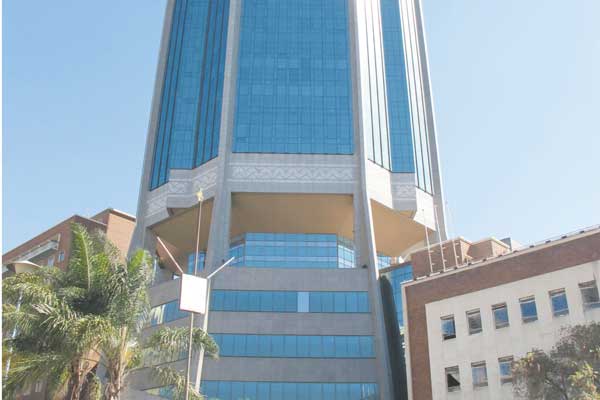
According to Press reports, the Reserve Bank of Zimbabwe (RBZ), if not Treasury’s Bond Note Incentive Initiative, is to provide support to exporters to increase their exports and bring back on-shore payments for the same in hard currency as early as possible.
Tapiwa Nyandoro
The RBZ rightly regards increasing exports as its printing press in the absence of a local currency.
Among the beneficiaries are mining firms that will benefit from a 5% windfall on their export receipts.
Tobacco and cotton exporters may benefit as well, though it is not clear whether the farmer or those who earn hard currency from tourism or service provision are in line for the rather generous windfall. If equity is an issue, then remittances should not be excluded.
On paper it sounds a good policy. The nation has been calling for investment and export incentives for some time.
But as they say in Shona: “Manga chena inoparira parere nhema”, to mean the white pumpkin betrays the otherwise hard-to-see black sibling.
Where it not for its complexity and outlandish generosity, the fear that it is a Trojan Horse towards the sneaky re-introduction of a local currency in the absence of supporting fundamentals such as a budget and trade surpluses may not have arose.
- Chamisa under fire over US$120K donation
- Mavhunga puts DeMbare into Chibuku quarterfinals
- Pension funds bet on Cabora Bassa oilfields
- Councils defy govt fire tender directive
Keep Reading
However, there is no denying that the overloaded fiscus is in need of relief that a local currency, even one masquerading as an “I Owe You” — IOU — which the bond note is, can bring.
Under the circumstances, the question must be asked: Why promise to give the rich miners cash, which you do not have, and will have to borrow? And why corrupt other people’s accounts with the bond note against their will?
As it turns out, in August 2016, one potential beneficiary Zimbabwean miner’s share price on an Australian bourse spiked up so much as to cause the bourse to officially raise questions as to the cause to protect the interests of shareholders, who may be in the dark as to their good fortune.
ZimPlats management gave some (convincing?) explanation, which included a repaired Bimha Mine, and rising metal prices, which led to a rather stellar performance by the mine as far as the bottom line was concerned.
But it may be the bond note incentive initiative that contributed most to the rising share price.
If the initiative is not just a waste of money in the face of rising metal prices, which ought to trigger a windfall tax if the price per ounce reaches a certain level, it should be linked to increased investment and production.
In fact, it could be argued: Why not invest the incentive as capital into the mines rather than give money away?
A poor country such as Zimbabwe should not subsidise rich multi-nationals with turnovers several times the size of its gross domestic product.
It would be excusable if the ore body was poorer than that in South Africa and Russia, the two biggest suppliers of platinum ahead of Zimbabwe.
But this may not be the case, with the Zimbabwe ore body richer and the cost of extracting the metals lower.
Zimbabwe’s labour costs too may be the lowest, raising concern as to what motivated the incentive.
Parliament and the Executive’s role in approving the incentive are unclear, as some oversight on the central bank on such issues is necessary.
A simplified tax regime and progressive incentives that reward investment, growing production and employment would have been far preferable to export receipts that may rise, as metal prices go up on the international market, even though output is falling and profits rising. Worse, huge dividends could see the incentive being shipped away to grateful shareholders.
It is important the incentive too must not be a perverse one. If money can be made on the base of rising metal prices, exchange gains and “managed availability or scarcity” of product on the market, wouldn’t it be a temptation to drive production up at marginal mines in other countries while holding Zimbabwean production back to the detriment of the generous country?
And of course, talking platinum group of metals (PGM), there is another angle to the whole thing. To the lucky beneficiary of a PGM claim, the incentive, if captured in an investment agreement with a sovereign guarantee, could seduce equity technical partners and finance houses into joint ventures.
Such seduction may sound good to the chosen few, who have lost their values, but for the majority Zimbabwe Mining Development Corporation (ZMDC) should be the claim holder and actual investing the money into a venture through ZMDC may be more prudent.
Of course, tax breaks linked to the quantum and pace of investment may be even better. I have intuitively a very uneasy feeling about the RBZ’s adventure.
It may also expose the bank, the mining houses and the Executive, in particular Treasury officials, to temptation. Perhaps, good corporate governance could persuade the miners to reject the offer?
The poor should not be robbed of the little they have. The spike in the share price on the Australian market needs a full explanation. It could have been a warning.
As far as farming goes, does the country need an incentive to grow more of the killer weed, tobacco?
Or should the little resource envelope for the incentive have been focused on growing and securing the markets and value chain for essential foodstuffs currently imported? Something somewhere doesn’t ring right.
“We are a foolish people. We made mistakes, this is the fixing period. The bond notes will give us room to breathe,” RBZ governor John Mangudya is said to have conceded. Let us pray and hope the days of folly are over.
Tapiwa Nyandoro can be contacted on [email protected] or [email protected]











